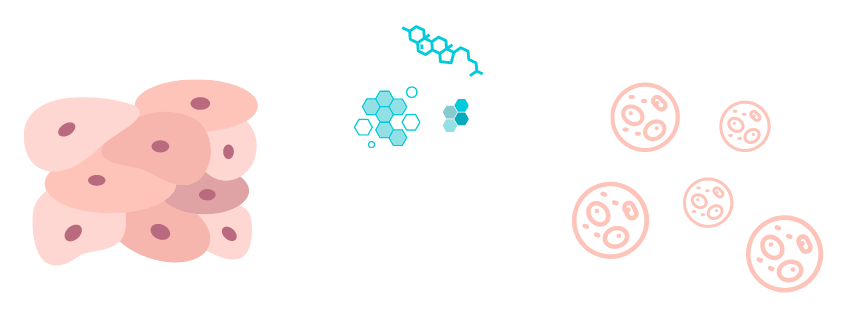
What Is Exosome
A New Star in Medical Aesthetics
Exosomes are a special type of extracellular nanovesicle, and they are nanosized and bioactive. We can consider them as the spokespersons for stem cells. Exosomes are capable of transferring information between different cells, and they also act as conductors coordinating intercellular operations, delivering a wealth of growth factors and anti-inflammatory agents, being responsible for the repair of organs and tissues, and regulating immune responses.
The paracrine and homing functions of exosomes positively affect the regeneration of damaged cells and inflammatory responses. Exosomes aid in the repair of our body’s cells and tissues. Recent years, understanding and applying exosomes has become crucial in regenerative medicine and medical aesthetics. Many diseases once thought irreversible, such as the repair of the nervous system (e.g., Alzheimer’s, stroke, glaucoma, etc.), the repair of organs (e.g., lungs, heart, kidneys, liver, etc.), as well as anti-aging and hair growth promotion, all have seen new hope through exosomes.

AM Biotech utilizes patented “Bio-Pulsed” technology to further produce over a hundred types of exosomes with various effects, which including for cosmetic hair growth, treating degenerative arthritis, accelerating fracture healing, treating premature ovarian failure, treating macular degeneration, treating tinnitus and hearing loss, and more.
The efficacy and quality of ExoGiov® Bio-Pulsed Exosomes are supported by solid scientific evidence. The research findings have been published in the prestigious International Journal of Molecular Sciences. This paper presents part of the patented “Bio Pulsed” technology developed by AM Biotech.
Through this technology, the number of exosomes secreted by stem cells can be increased by 93 times. Simultaneously, the content of proteins and miRNA within the exosomes also increased by 1.4 and 1.3 times respectively. Significantly increasing the quality and quantity of the exosomes.
The cellular experiments in the paper further demonstrate the various bioactivities and remarkable effects of the Bio-Pulsed Exosomes. Besides promoting the healing of skin cell wounds, the expression of key skin components related to hydration and elasticity, such as Type I collagen, Type III collagen, and elastin, also significantly increased. It was also verified that genes related to hair follicle cell activity and proliferation, such as RAC1, IGF-1, CCND1, PCNA, were significantly enhanced in experiments using Bio-Pulsed Exosomes on hair follicle cells. Those genes related to hair follicle cell apoptosis, CASP2, and TP53, were also inhibited.
In 2013, James E. Rothman and three others won the Nobel Prize in Medicine for their discovery of the regulatory mechanism of vesicle transport within exosome cells.

In 2023, domestic Professor Shen Tanglong was awarded the Schweitzer “World Medical Award” as a “pioneer in exosome research”.
